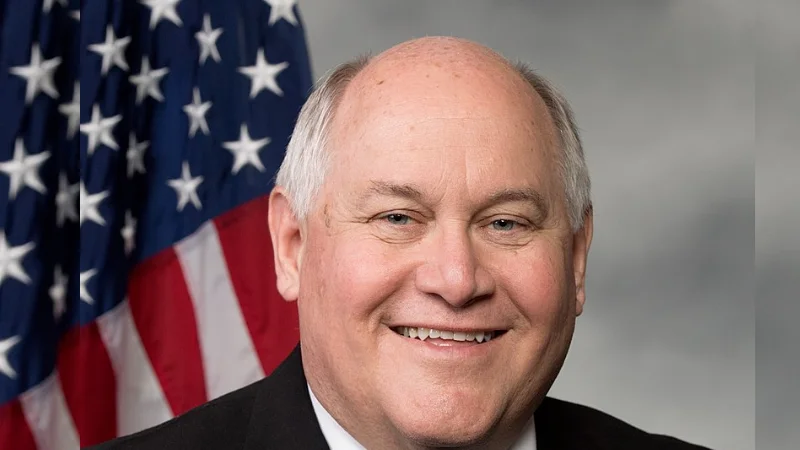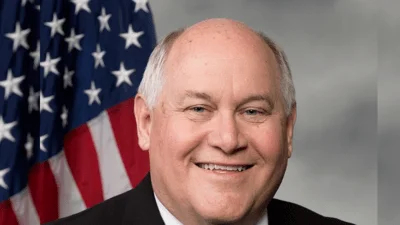Rep. Ron Estes, U.S. Representative for Kansas 4th District | Congressman Ron Estes Official Website
Rep. Ron Estes, U.S. Representative for Kansas 4th District | Congressman Ron Estes Official Website
U.S. Congressman Ron Estes (R-Kansas) spoke at a Ways & Means Committee field hearing at the Ronald Reagan Presidential Library in Simi Valley, California. The hearing focused on the potential impact of the One Big, Beautiful Bill on small businesses across the country.
During his remarks, Estes discussed the legislative process and its intended benefits for small businesses and working families. He stated, "Thank you, Mr. Chairman, for organizing another round of field hearings. It’s fitting that we’re here today in the Ronald Reagan Presidential Library after Republicans passed the One Big, Beautiful Bill."
Estes highlighted how the bill continues President Reagan’s approach to tax policy: "This historic legislation builds on President Reagan’s legacy of lowering the tax burden on Americans, so they can keep more of their hard-earned money. Through field hearings and tax teams, we spent hundreds of hours traveling the country to talk to Americans to gather their input."
He said that after extensive efforts gathering feedback nationwide, "the One Big, Beautiful Bill will put America first, delivering immediate tax relief to small businesses, farmers, producers, and working families." Estes emphasized that supporting small businesses is central to economic growth: "Small businesses are critical to our economy and provide an honest living for Americans and their families."
He also pointed out Republican priorities in Congress: "Ensuring our tax code is fair and encouraging growth is a priority to Republicans in Congress." A key part of this bill is extending and enhancing certain deductions: "A significant component of the One Big, Beautiful Bill is the permanent extension and enhancement of the 20% Small Business Deduction."
Estes explained how these changes could help local economies: "With this deduction being made permanent, small businesses will be empowered to reinvest in their operations, hire more workers, and contribute to local economies." He added that increased expensing limits would further support business investment: "Small businesses will also benefit from the doubled Small Business Expensing of $2.5 million because that will enable them to invest in their employees and grow their businesses."
On family-owned enterprises specifically he noted: "Part of ensuring generational growth in business...we are making sure families aren’t overburdened by taxes and government red-tape." The legislation also addresses estate taxes: "Our legislation also raised, and made permanent, the death tax exemption..."
A provision related to research spending was a focus as well: "A key provision Chairman Smith and I worked on was the permanent restoration of immediate expensing for domestic research and development..." Estes argued this move supports American innovation.
He cited negative effects from a previous expiration date for R&D incentives: "The R&D expensing provision expired in 2022...and we saw plummeting in investment...after the 2022 expiration." Making it permanent again should have broader impacts according to Estes: "Making this provision permanent will boost our economy and lead to more job growth."
He further stressed employment implications tied directly with R&D spending: “One of the things we can’t lose sight of is that three-quarters of R&D spending are for wages.” Certainty about these policies may encourage domestic manufacturing jobs.
Without these legislative actions he warned there could have been higher taxes for smaller firms: “Without our work...Main Street and rural businesses would have faced a 43.4% federal tax rate if the Small Business Deduction expired at the end of this year.”
Looking ahead with Republican leadership he predicted positive outcomes similar to those seen under prior laws enacted during Donald Trump’s presidency.
“We saw those results when TCJA was passed during President Trump’s first term,” Estes said. “And now...we’ve made many of those provisions permanent.”
As Congress moves forward he affirmed continued attention toward reducing spending alongside pro-growth policies from recent legislation.
Ron Estes has served as U.S. Representative for Kansas’ 4th district since 2017 after replacing Mike Pompeo (https://estes.house.gov/about/). Born in Topeka in 1956 (https://bioguide.congress.gov/search/bio/E000298), he currently lives in Wichita (https://www.cjonline.com/story/news/politics/elections/2017/04/12/kansas-4th-district-congressman-ron-estes-sworn-office-thursday-afternoon-washington-dc/100376416/). He graduated from Tennessee Technological University with a bachelor’s degree.


 Alerts Sign-up
Alerts Sign-up